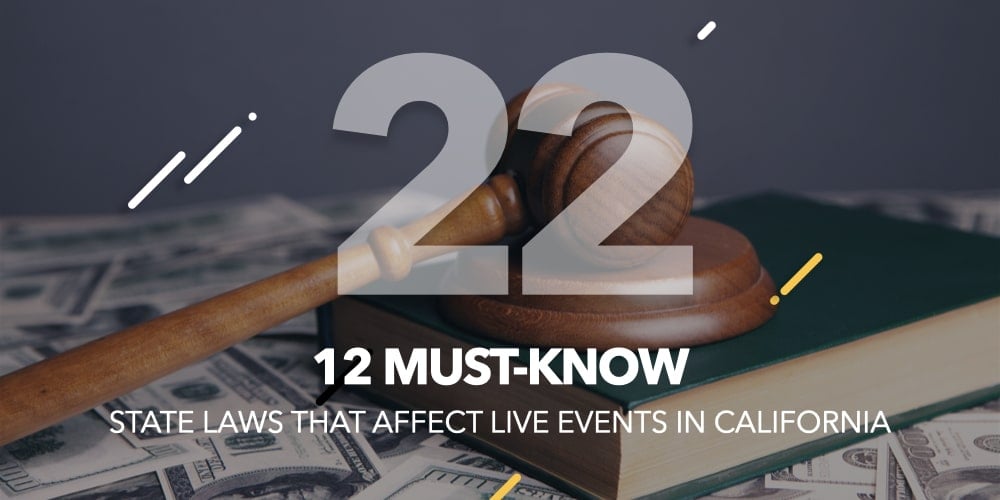The 12 things you need to know:
- Pay Rules (overtime is paid daily instead of weekly.)
- The Sick Leave Act.
- The new OSHA requirements called AB 1775.
- California Employment Training Tax.
- Meal Penalties.
- The California Pay Transparency Law.
- The COVID-19 Supplemental Paid Sick Leave Law.
- California Labor Code 64 0 9 0.6 a.
- SB 1343.
- AB five.
- Family Medical Leave Act.
- California Family Rights Act.
Listen 🎧
Read the Transcript 📚
[00:00:34] Angela Alea: Today I wanna talk about doing business in the state of California. I know it can seem daunting, scary, super expensive, and I’ve just heard a number of companies out there just say, you know what? I’m not even gonna deal with it. I don’t wanna touch it.
[00:00:53] Angela Alea: But that comes at a cost too, right? Because let’s. In California, there’s a lot of great events, a lot of [00:01:00] entertainment, just a lot of things are happening out there. And so today I really wanted to just spend some time just talking about what does it mean to do business in the state of California. So there’s about 12 different components of things that you need to really understand if you’re comfortable with, if you have the wherewithal to become compliant.
[00:01:21] Angela Alea: And so we’re gonna kind of dig into those 12 things at a very high. Some of them have to do with, payroll. Some of them have to do with just how you interact with your people, and some of them have to do with reporting. So we’re just gonna kind of take it step by step. So let’s talk about the payrules.
[00:01:38] Angela Alea: So obviously in California, They just do things a little bit different, so we’re just gonna say it like that. Beautiful state, beautiful weather. But it’s difficult. They make it difficult to do business out there and to have employees out there, but it doesn’t have to be as difficult and as scary as, some might think it is.
[00:01:56] Angela Alea: So we’re gonna unpack that. So when it comes to pay rules in [00:02:00] California, they treat overtime differently. I’m sure many of you are aware of that. So in most states, not all, but most, you are required to pay your people weekly overtime after 40 hours in a week. And the state of California and a couple more out there like Colorado, they have different rules.
[00:02:19] Angela Alea: But in California you have to pay daily overtime. So anything. After eight hours in a day, you would have to pay time and a half all the way up to 12 hours. After 12 hours, you have to pay double time, so double their. They also have a rule called the seventh consecutive day payroll. So if they’re working seven consecutive days, there’s also a surcharge on that.
[00:02:41] Angela Alea: And they also have pay frequency variances, so it’s not like you can pay them once a month. So they wanna make sure the state of California is very employee friendly, so you have to pay your people often enough. There’s also something called the Sick Leave Act, which basically says for every 30 hours.[00:03:00]
[00:03:00] Angela Alea: Your employee, even if they’re a freelancer, your W2 person would accrue one hour of sick time. Now, that sounds fairly straightforward, however, these laws vary by city in the state of California, so you’re required to manage, there’s max balances, there’s balances that carry over, and then there’s annual usage limits.
[00:03:25] Angela Alea: So how much can your employees actually utilize each. The third one is there’s new OSHA requirements. It’s called AB 1775, and what that states is an employee must complete the OSHA 10. The OSHA 10, general entertainment safety training, or just the OSHA 10 as applicable to their occupation. So obviously in our world it definitely applies.
[00:03:51] Angela Alea: It also says heads of departments and leaves. Have to complete the OSHA 30 training and that they’re certified through that [00:04:00] program. The fourth thing is, The California Employment Training Tax. So not only are you paying payroll taxes, because according to AB five, you have to W two people who are working for your company while working in that state.
[00:04:18] Angela Alea: So not only are you gonna pay Social security, Medicare, federal unemployment, and state unemployment. The state of California has a fifth tax called the California Employment Training Tax. It’s typically about 0.1. Also related to payroll are pay data requirements. So if you’re an employer that have a hundred or more full-time equivalent employees, you must report payroll and hours worked data by establishment, their job category, their sex, their, their race and ethnicity to the Civil Rights Department.
[00:04:54] Angela Alea: And that has to be done annually. So that’s one of those reporting requirements we talked about. [00:05:00] Also in the state of California, there’s meal penalties. If somebody is working more than five hours straight without a meal break, there’s a penalty. So the time that you’re leaving them on the clock until they get a break, you are paying them time and a half.
[00:05:14] Angela Alea: There’s also the California Pay Transparency Law. This is a new one. It’s becoming effective January 1st of 23, and it basically says you as the company and the employer, you have to post the pay rate. With any job offer, both internal or external offering that you have, good news is most of us are already doing that, right?
[00:05:38] Angela Alea: Like, Hey, I’m looking for a stage hand. I’m looking for general AV tech. I’m looking for an A one. Here’s what this job is paying. But sometimes we don’t always see that, right? Sometimes there’s a posting, Hey, I’m looking for, you know, this, many of this type of job discipline apply here. And starting January, you’re now gonna have to post that pay rate with any job.
[00:05:58] Angela Alea: There’s also the Covid 19 [00:06:00] supplemental paid sick Leave law, which allows covered employees to take up to 40 hours of Covid, 19 related sick leave. There’s also the California Labor Code 64 0 9 0.6 a. For those of you to wanna look that up. So again, it’s 64 0 9 0.6 a and it requires employers to provide covid notices with one business day of notification of a potential exposure.
[00:06:28] Angela Alea: Hopefully, knock on wood, we are mostly past all of that, but it does still apply. The 10th one is called SB 1343, and it now requires all employers who have five or more employees provide training, so lemme tell you. And it’s pay training. So they have to provide one hour of sexual harassment and abusive conduct prevention.
[00:06:53] Angela Alea: To all non managerial employees and two hours of sexual harassment and abusive [00:07:00] conduct prevention training to managerial employees every two years. So not only do you need to procure the training you wanna provide, You need to figure out how you wanna roll it out, how you wanna track it, manage it. And then again, this is paid training.
[00:07:14] Angela Alea: So anybody who completes the training, you are required to pay them and then manage that rollout again every two years. So again, that one’s called SB 1343. The 12th one is the Labor Code Section 28 0 2. It has to do with reimbursing expenses, so an employee is entitled to be reimbursed by his or her employee for all necessary expenditures or losses incurred by the employee in direct consequence of the discharge of his or her duties.
[00:07:44] Angela Alea: Or his or her obedience to the directions of the employer. So basically, in a nutshell, you have to reimburse for any business related expenses such as equipment, materials, training, business, travel, uniforms, all of that is now a [00:08:00] requirement, and again, related to AB five. We are talking about employees, not 10 90 nines, because the, the foundation of all of this is if you’re doing business in California, according to AB five, you must be W two.
[00:08:15] Angela Alea: These folks, even if they only work one 10 hour day for you throughout the year, The Department of Labor says they are an employee. And then the last one is related to F M L A, which is the Family Medical Leave Act. The California didn’t think that federal mandate was enough, so they wanted to institute a state mandate, which is called the California Family Rights Act.
[00:08:37] Angela Alea: It basically allows eligible employees to take up to 12 paid or unpaid weeks off for various family and medical reason. So it’s similar to F M L A, it’s just the criteria in the state of California is a little bit different. It’s different, as an example, it’s different than F M L A because, F M L A only allows for 12 weeks off for,[00:09:00] a birth of a child if there’s complications for pregnancy.
[00:09:03] Angela Alea: The sf, or excuse me, the CFRA doesn’t have that contingency. So again, these are 12 on top of. Big one, which is AB five. If you have any questions, reach out. Happy to go through this with you. Happy to talk through how to set up some of these processes. There’s obviously companies out there who will employ people.
[00:09:25] Angela Alea: If you’re going to California, so it’s one less thing you have to do. But if it’s something you really wanna tackle yourself, those are the 13 things that you need to be thinking about. If you’re going to do a show in California with employees, again, it counts, even if it’s for one day. You’re exposed unless you follow these things.
[00:09:45] Angela Alea: So hopefully that’s helpful. If you like what you hear, subscribe to the podcast and if you have any questions or comments or feedback, reach out to us@podcastlasso.io. Thanks so much.[00:10:00]





